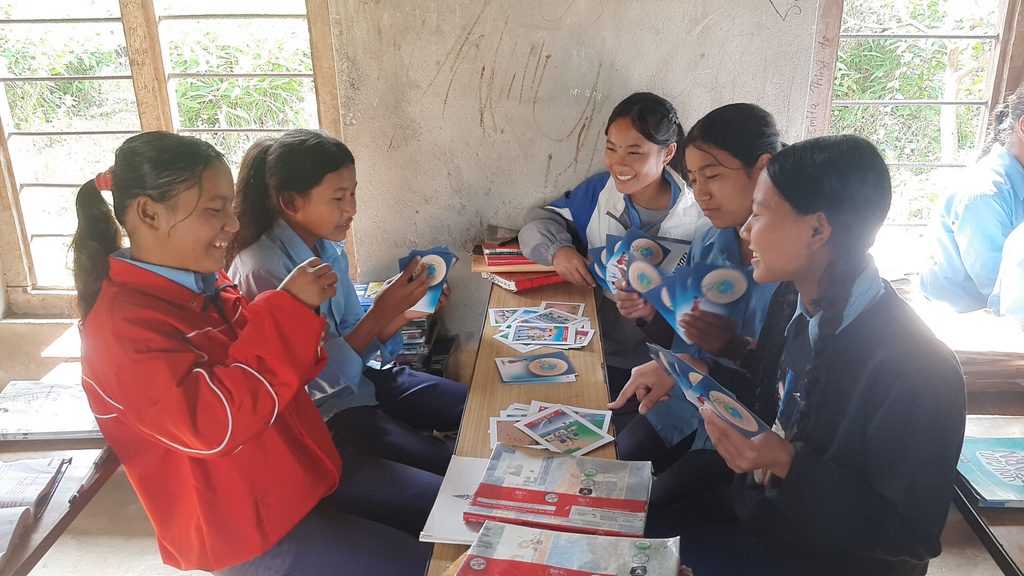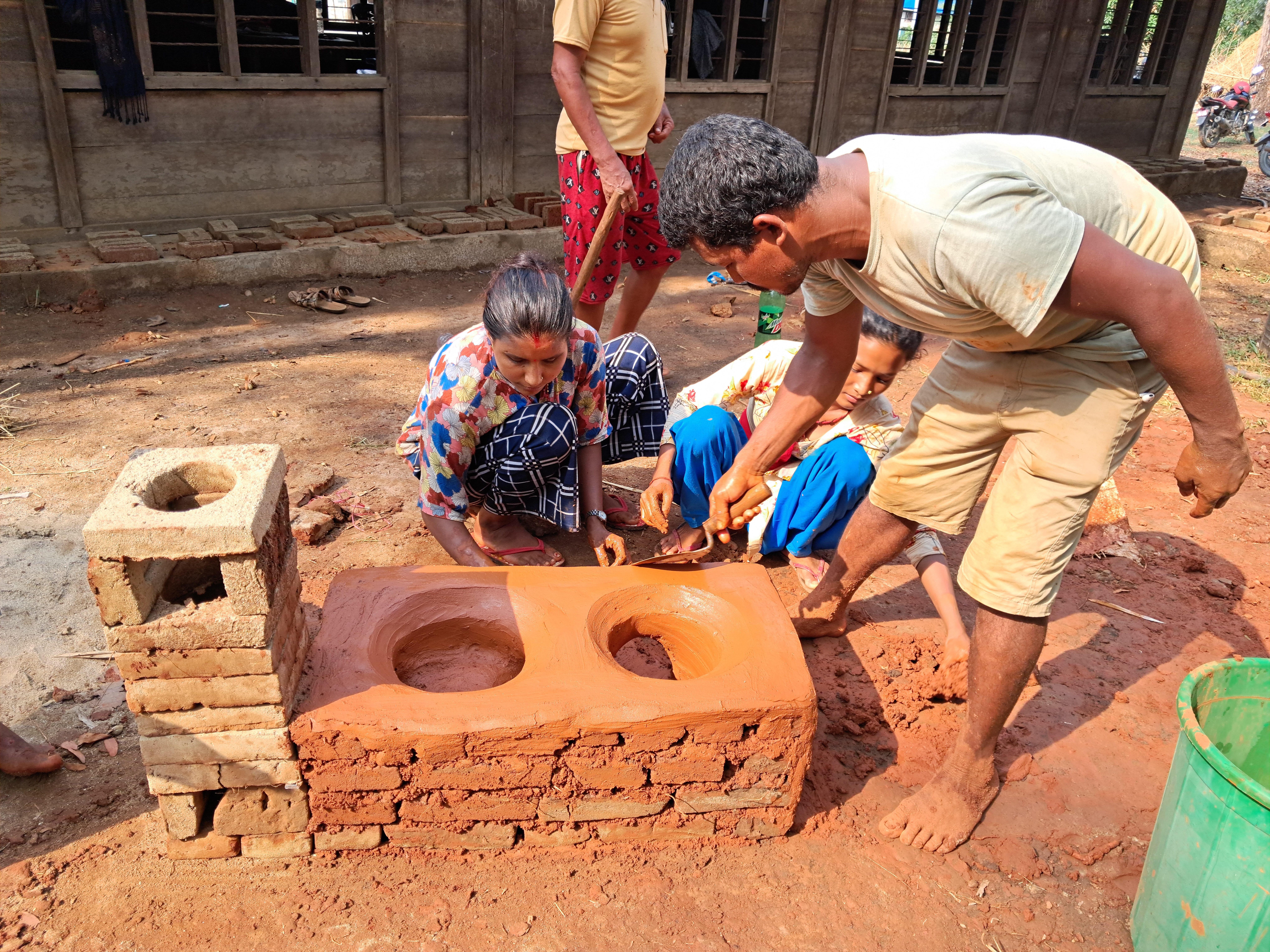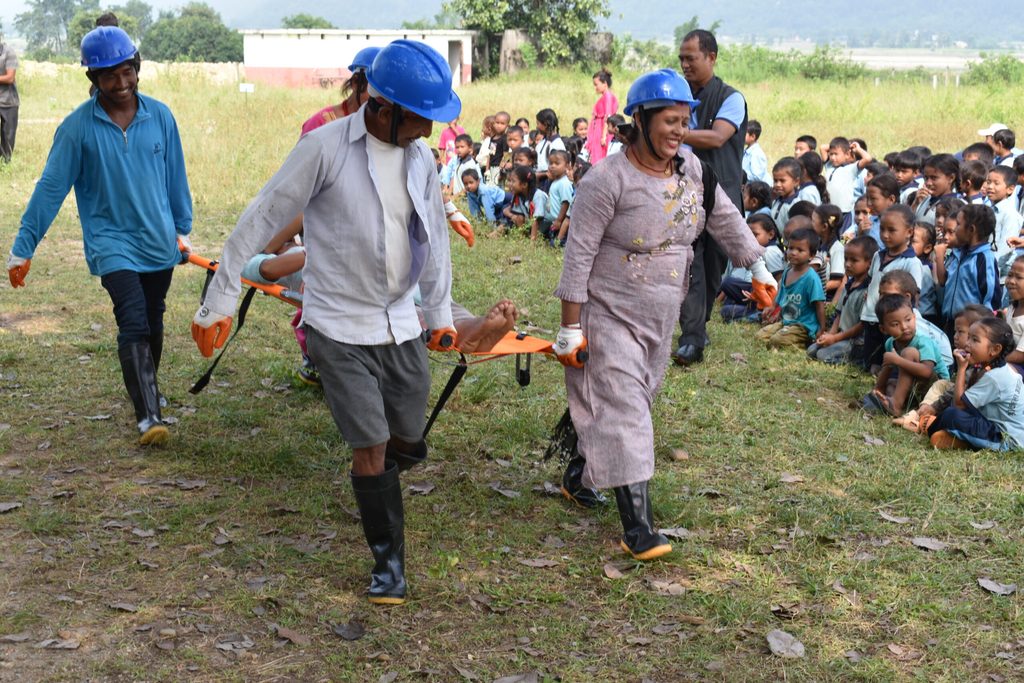Masali, a school safety campaigner
Masali, a 16-year-old, is a school safety campaigner from Sindhuli, learning and sharing information about disaster risk management and promoting climate-smart safe schools.

Masali is a 16-year-old girl from a small village in Sindhuli. She studies in grade 8 and lives with her parents and younger brother. Her father works as a farmer, and her mother looks after their home. Masali is the eldest child in her family and helps her parents when she can.
“I’ve learned that climate change is not just about big disasters; it’s also about how our daily lives are affected,” says Masali. “In my village, we’ve noticed that the weather has become very unpredictable. The rains come late, and when they do, they’re too heavy, causing floods and washing away our crops. On the other hand, sometimes we face long dry spells that ruin the harvest. My family’s farm used to grow enough to feed us all year, but now, the yields have reduced a lot. Farmers here are struggling to grow food, and many have to borrow money just to survive.”
In her school and community, Masali is very active. She takes part in many activities like disaster drills, learning sessions, and even training on how to keep schools safe during emergencies. She has also learned about climate change and ways to prepare for disasters, such as using maps to show evacuation routes and creating a hazard calendar.
Challenges in her community
Masali’s village faces problems like landslides, storms, and fires. Before learning about disaster preparedness, her community didn’t know much about how to handle such situations. People believed disasters happened because of fate. But Masali now understands that they can prepare and reduce the damage caused by disasters.
“Many people in my community still think disasters are just bad luck or something we can’t do anything about,” says Masali. “When floods or landslides happen, they often say, ‘It’s just fate.’ They don’t plan ahead or take warnings seriously, and some even ignore the risks. I’ve seen families lose their homes and still not prepare for the next disaster. It makes me realise how important it is to raise awareness and show them that we can be ready and stay safe.”

“Learning about the Comprehensive School and Community Safety Plan has taught me that disasters aren’t just about bad luck,” says Masali. “Now I know we can prepare and protect ourselves. In school, we’ve created evacuation maps, hazard calendars, and family preparedness plans. These simple steps can save lives, and I want to share this knowledge with my community so they stop thinking it’s just fate and start taking action.”
“Learning about the Comprehensive School and Community Safety Plan has taught me that disasters aren’t just about bad luck.”
Masali
In her home, Masali’s family uses an improved cooking stove, which reduces smoke, saves firewood, and makes cooking easier for her mum. They also have a family plan for what to do if a disaster happens.
Masali’s mother says, “The improved cooking stove has made a big difference. There’s less smoke, we use less firewood, and cooking is much easier now.”
Her father adds, “Having a family disaster plan gives us peace of mind. We know what to do if something happens, and it makes us feel more prepared.”
“The improved cooking stove has made a big difference. There’s less smoke, we use less firewood, and cooking is much easier now.”
Masali’s mother
Masali’s role in promoting safety

After attending training on school safety, Masali worked with her classmates to create a safety plan for her school. They listed the dangers their school has faced in the past and might face in the future. Together, they also made maps showing where to go during emergencies.
Masali says, “Before the training, we never thought much about what to do if something bad happened,” says Masali. “Now, we have a plan. We know where to go, what to do, and how to stay safe. It makes me feel proud to help my school prepare.”
Nabina, Masali’s classmate adds, “Masali encouraged us to think about the dangers we’ve faced before,” says her classmate. “Now, we all know where the safe spots are and how to protect ourselves.”
Masali’s class teacher shares, “Masali has been a leader in creating our school’s safety plan,” says her teacher. “She makes sure every student understands their role and feels prepared for emergencies.”
Masali says, “After learning about safety, my friend and I decided to share this knowledge with our families and neighbours. We want everyone to know how to stay safe.”
“After learning about safety, my friend and I decided to share this knowledge with our families and neighbours. We want everyone to know how to stay safe.”
Masali
About the project
The Gender Responsive School and Community Safety Initiatives Project, supported by Plan International, was implemented from July 2021 to June 2024 in Nepal and Bangladesh. It aimed to create safer, gender-responsive learning environments in 8 schools and 24 communities in Sindhuli by strengthening disaster risk management and promoting climate-smart safe schools.
Masali actively participated in the project’s training sessions, where she learned about disaster preparedness and school safety. Her leadership aligns with the project’s goal of empowering girls as safety champions, helping her school and community become more inclusive and resilient. “Small steps like having a plan or practising drills can save lives,” says Masali.


